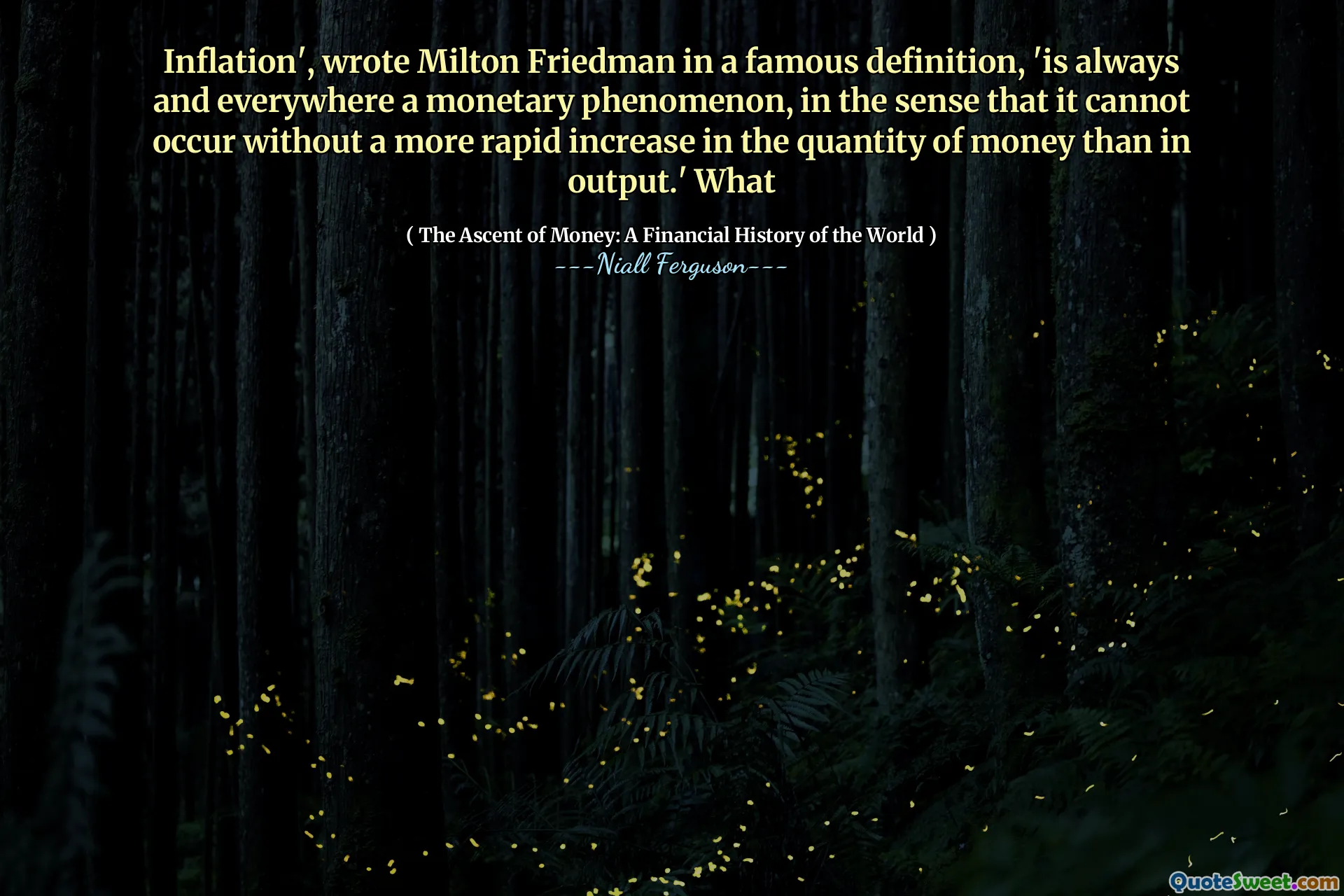
Inflation', wrote Milton Friedman in a famous definition, 'is always and everywhere a monetary phenomenon, in the sense that it cannot occur without a more rapid increase in the quantity of money than in output.' What
Niall Ferguson, in his book "The Ascent of Money: A Financial History of the World," explores the intricate relationship between money and economic phenomena, such as inflation. He emphasizes Milton Friedman’s assertion that inflation is fundamentally linked to monetary policy, stating that it arises only when the money supply increases more quickly than the production of goods and services. This perspective highlights the crucial role of monetary authorities in managing economic stability and the potential consequences of their actions.
Ferguson delves deeper into historical instances where inflation impacted economies, illustrating how mismanagement of money supply has led to severe financial crises. By examining various financial systems over time, he demonstrates the lessons learned from past inflationary experiences and underscores the importance of maintaining a balance between money growth and economic output to prevent destabilization in economies worldwide.











